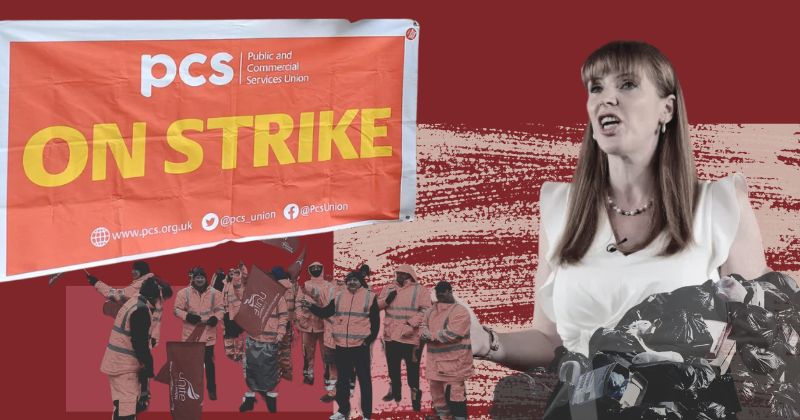

By a PCS activist
Staff at the Ministry of Housing, Communities and Local Government (MHCLG) will begin strike action on Tuesday 22 April in response to threatened office closures, mandated attendance at the remaining offices, and restriction of promotion opportunities.
Five offices in Birmingham, Truro, Exeter, Sheffield and Warrington will take a week of action with Newcastle taking two weeks as it is earmarked for closure the soonest. These warning strikes are a great start to the campaign, but the best and quickest way to win is to escalate the action up to and including all-out, like Unite’s Birmingham bin workers.
The Public and Commercial Services Union (PCS) is also concerned that the department may end location-neutral recruitment, meaning that not all staff have the same access to job opportunities.
Staff in MHCLG offices that have not yet been threatened with closure have also won their ballot for industrial action, so we can expect the announcement of department-wide action soon.
MHCLG, like much of the civil service, mandates minimum office attendance, a legacy from the previous Tory government that was imposed without evidence of how it impacts work performance.
Workers in the Land Registry, civilian Met Police staff, the Parliamentary and Health Service Ombudsman, and Office for National Statistics (ONS) have already taken industrial action against this arbitrary target. A PCS union rep from the ONS told the BBC’s Panorama that ‘We’ve never been told by senior leaders at the ONS that there is a problem with productivity, there’s a problem with quality, there’s a problem with meeting deadlines.’
Rayner’s Employment Rights Bill is currently facing fierce resistance from employers, who are demanding that it be watered-down even further before becoming law. That Rayner is riding roughshod over the employment conditions of her own staff shows how little faith we can have in her to stand up for our rights without bringing to bear significant pressure of our own.
In Birmingham, there is an opportunity for striking workers from Angela Rayner’s department to link up and protest alongside the bin workers who Rayner recently called on to accept a pay cut.
Linking up our struggles, creating anti-austerity, anti-cuts groups in each locality is essential for both supporting the strikes and struggles that are now emerging like the defence of disability benefits, and to prepare to resist the much bigger wave of austerity that Labour is planning.